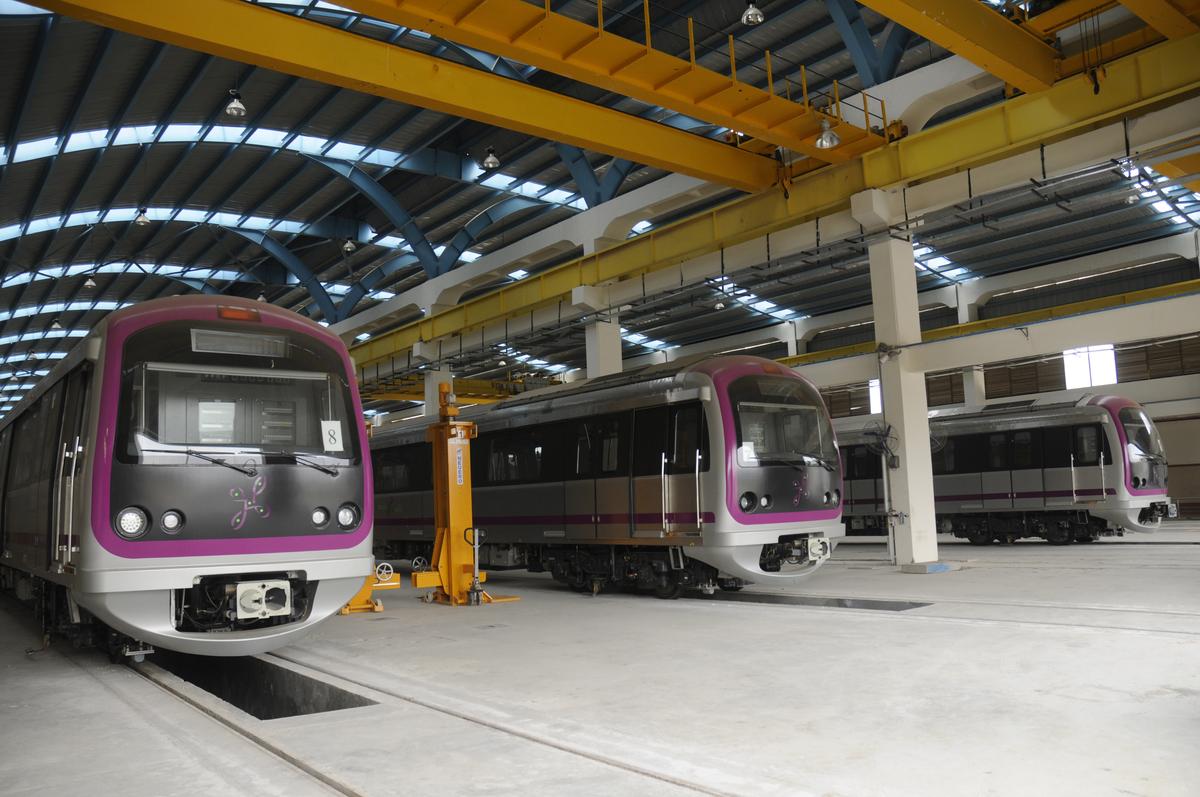Bengaluru’s metro authority is undertaking extensive upgrades of its existing depots while constructing five new ones across the city. This strategic move by the Bangalore Metro Rail Corporation Limited (BMRCL) is aimed at preparing the infrastructure to support an influx of new train sets and ensure smoother operations as the network extends to cover more routes and commuters.
Currently, three primary depots — Peenya, Kadugodi-Whitefield, and Baiyappanahalli — service the Green and Purple Lines. However, with 21 new trains scheduled for deployment across these corridors, BMRCL is enhancing capacity at Peenya through the addition of new platforms, a jack pit for three-car configurations, and other critical facilities. These upgrades, estimated at ₹1.94 crore, are expected to improve train stabling and servicing efficiency on the Green Line. A major infrastructure milestone has also been achieved at the Baiyappanahalli depot. Redesigned at a cost of ₹249.19 crore, this facility is now the first in the city to feature a two-level structure, making it a flagship model for operational flexibility. Positioned between the two key corridors of Phase 2A (Outer Ring Road) and Phase 2B (Airport Line), the depot will cater to 16 and 21 train sets respectively. Officials highlighted its role as a transitional operational base until the Shettigere depot, planned for the Airport Line, becomes fully functional.
The current function of the Baiyappanahalli depot as the maintenance hub for the Purple Line will eventually shift. Once the transition is complete, train maintenance responsibilities will be split between the Kadugodi and Challaghatta depots. This redistribution will free up Baiyappanahalli to handle the more demanding logistical needs of the two expanding corridors. In parallel, five new depots are under development to support the growing metro grid. These are located at Shettigere (Airport Line), Kothanur (Pink Line), Anjanapura (Green Line extension), Challaghatta (Purple Line extension), and Hebbagodi (Yellow Line). The newly completed depot at Hebbagodi will serve the R.V. Road–Bommasandra Yellow Line, adding operational flexibility and enabling frequency enhancements on the southern corridors.
Transport planners note that these expansions align with a long-term vision to establish a metro system that is scalable, sustainable, and resilient. By investing in depot infrastructure today, BMRCL is creating capacity buffers that will allow future metro phases to be implemented without major operational bottlenecks. With Bengaluru’s urban sprawl and traffic challenges mounting, a robust metro backbone supported by advanced depot facilities offers not just a transit solution but a move towards cleaner, greener mobility. These infrastructure upgrades are critical in shifting more urban residents from private vehicles to efficient, mass public transit — a goal that aligns with the broader climate and sustainability imperatives of Indian cities.
Also Read : Jaipur Roads Collapse Again Near Metro Station Triggering Commuter Delays And Outrage


